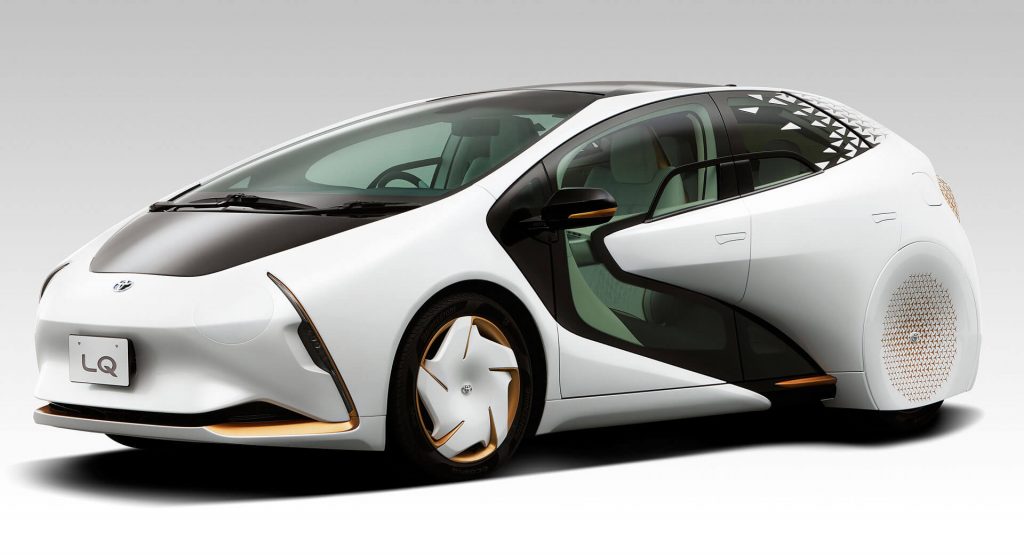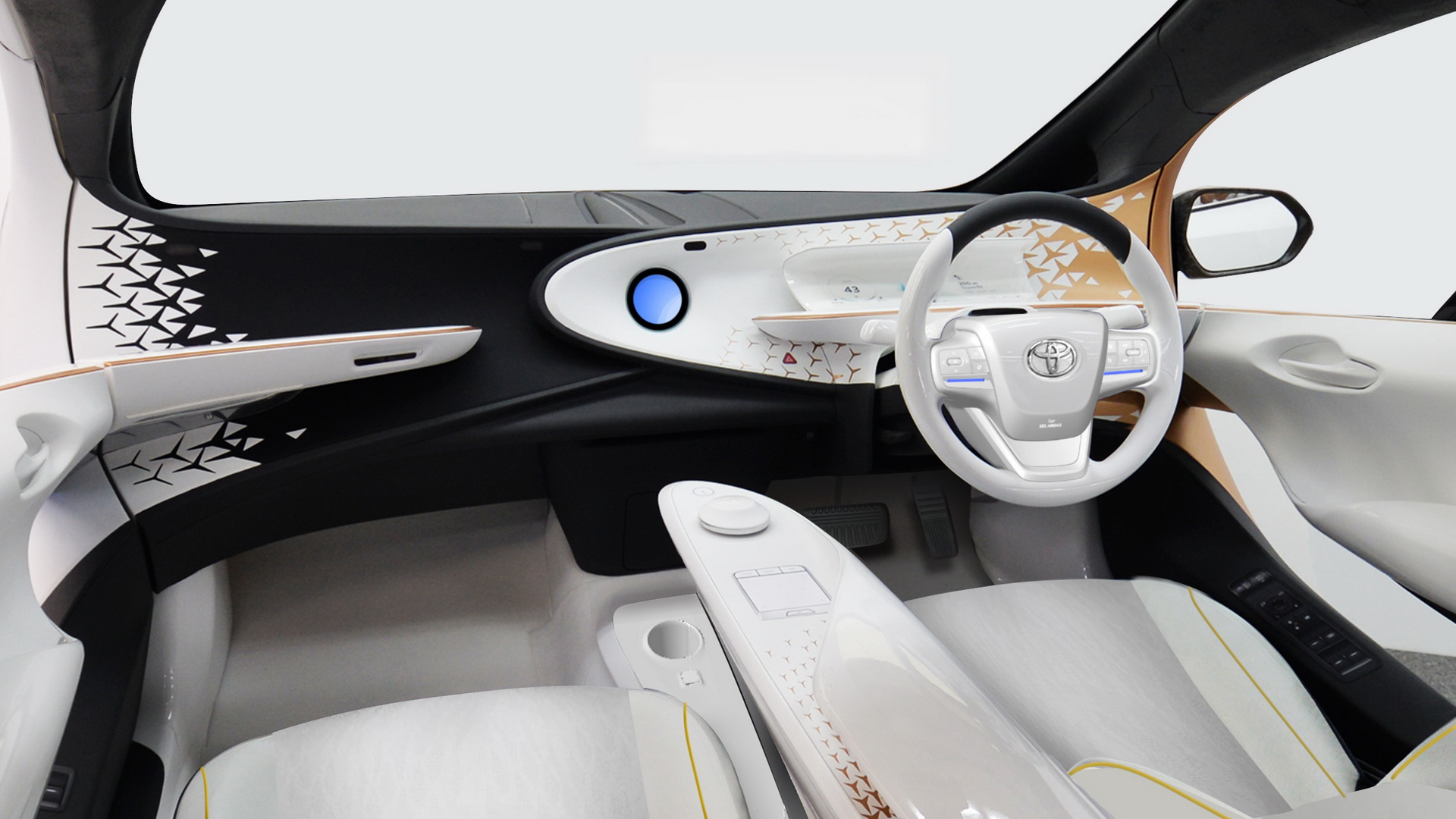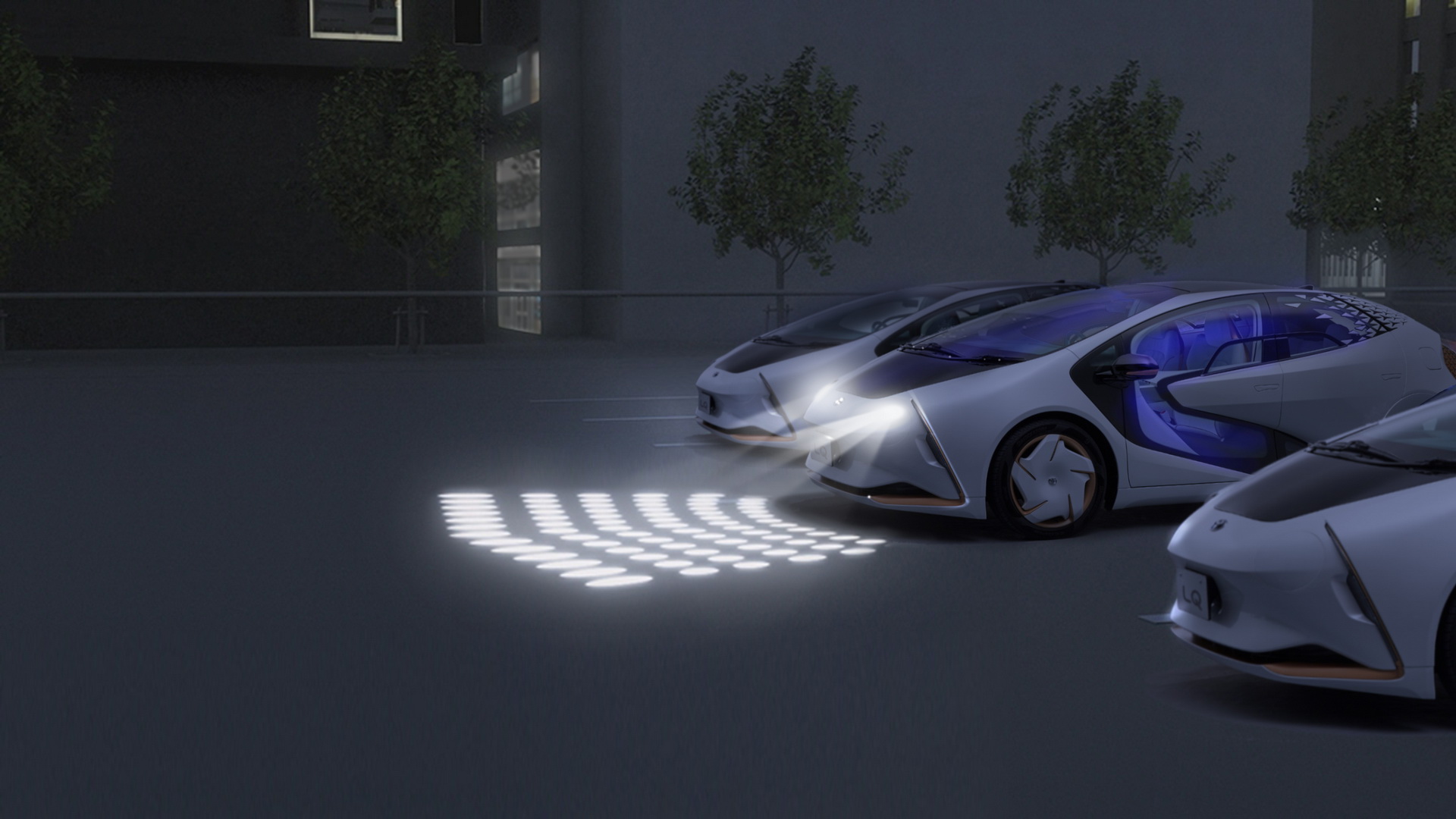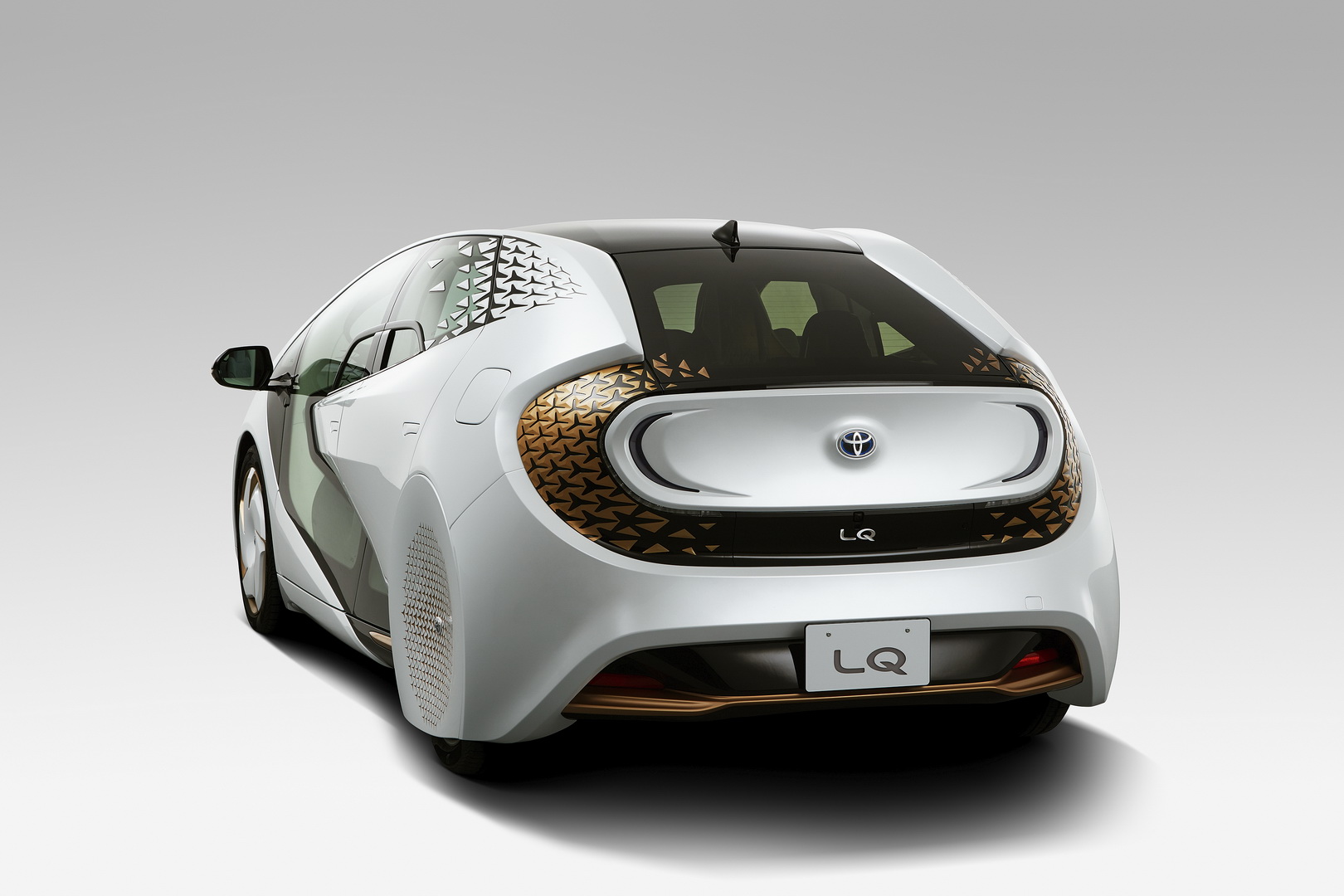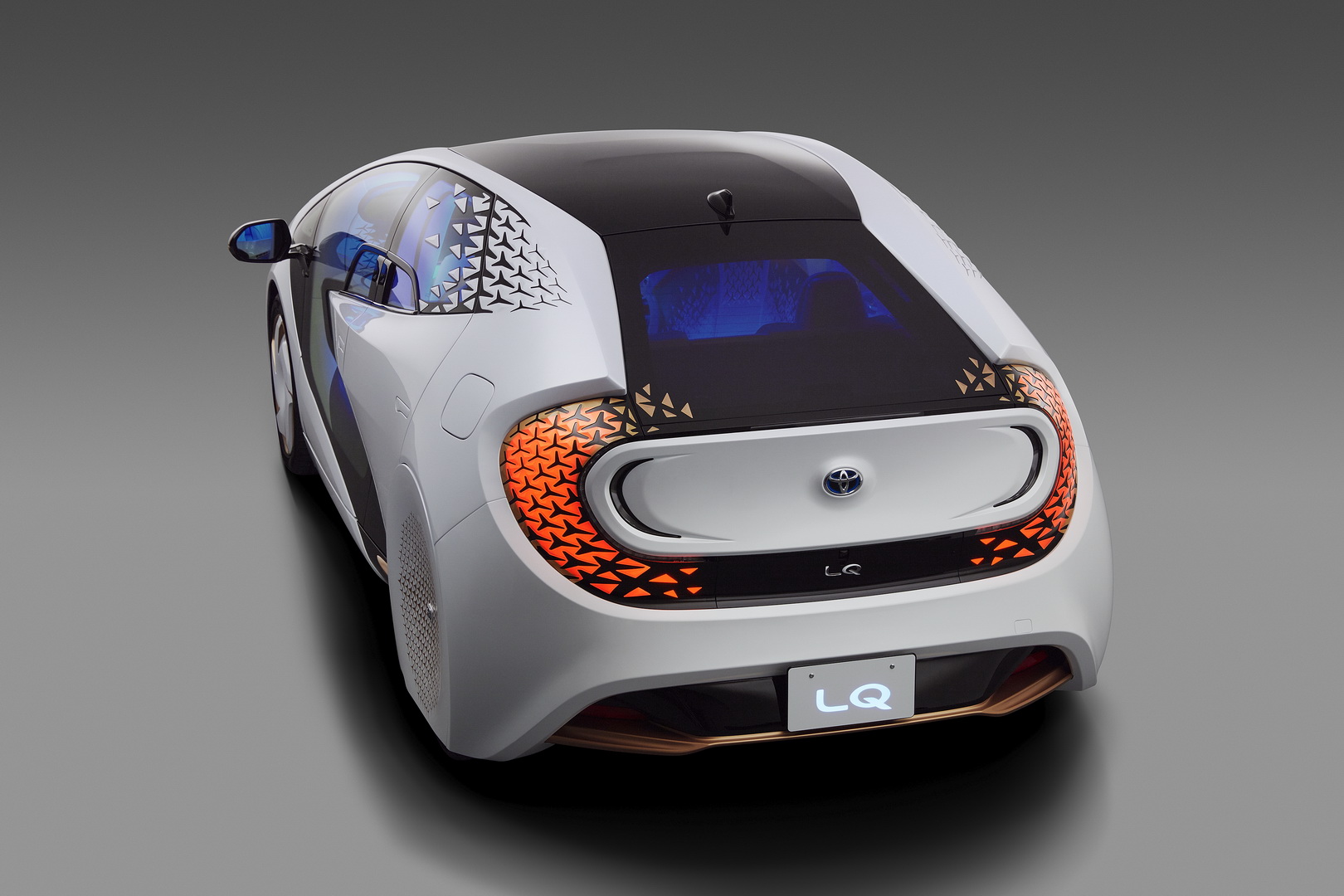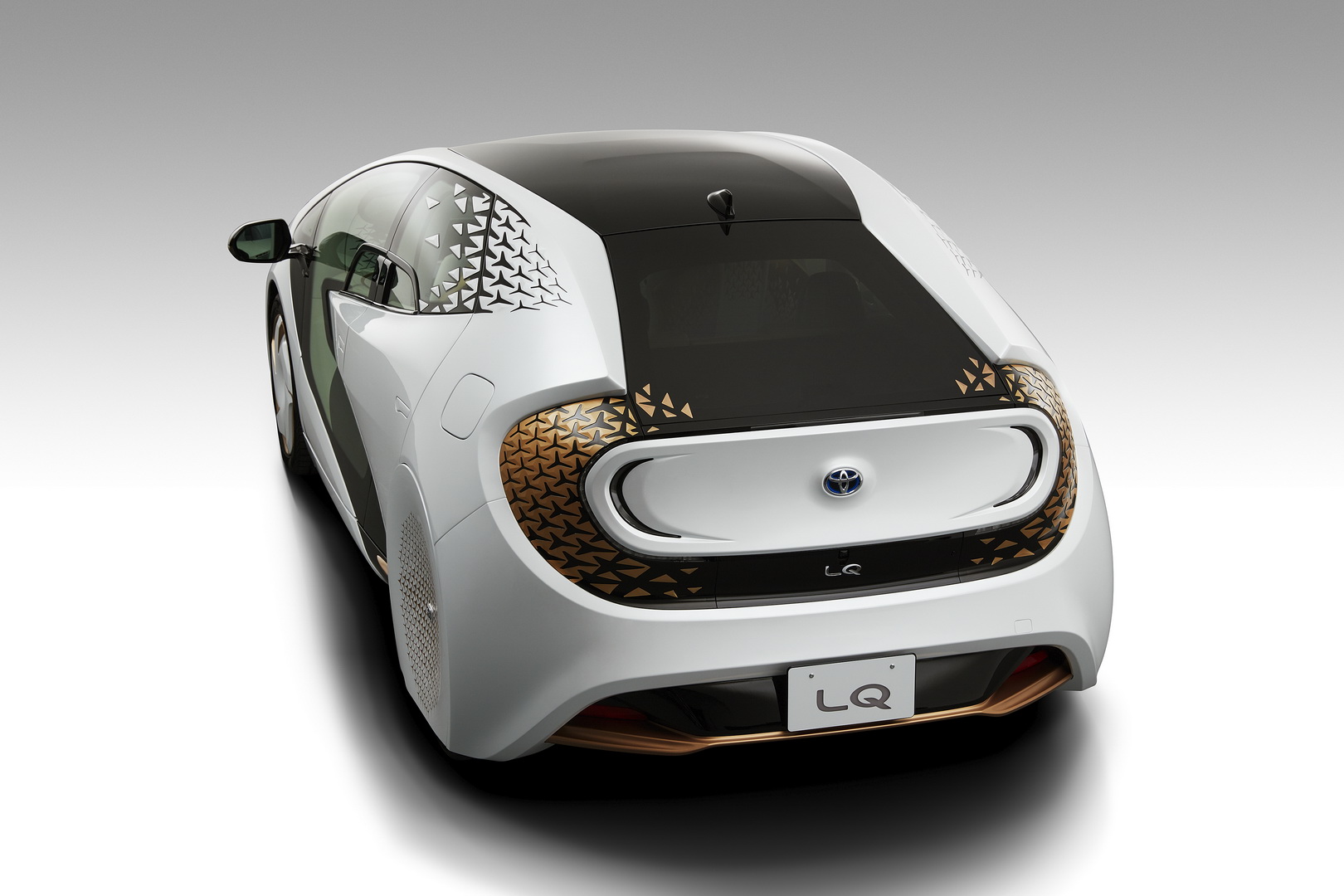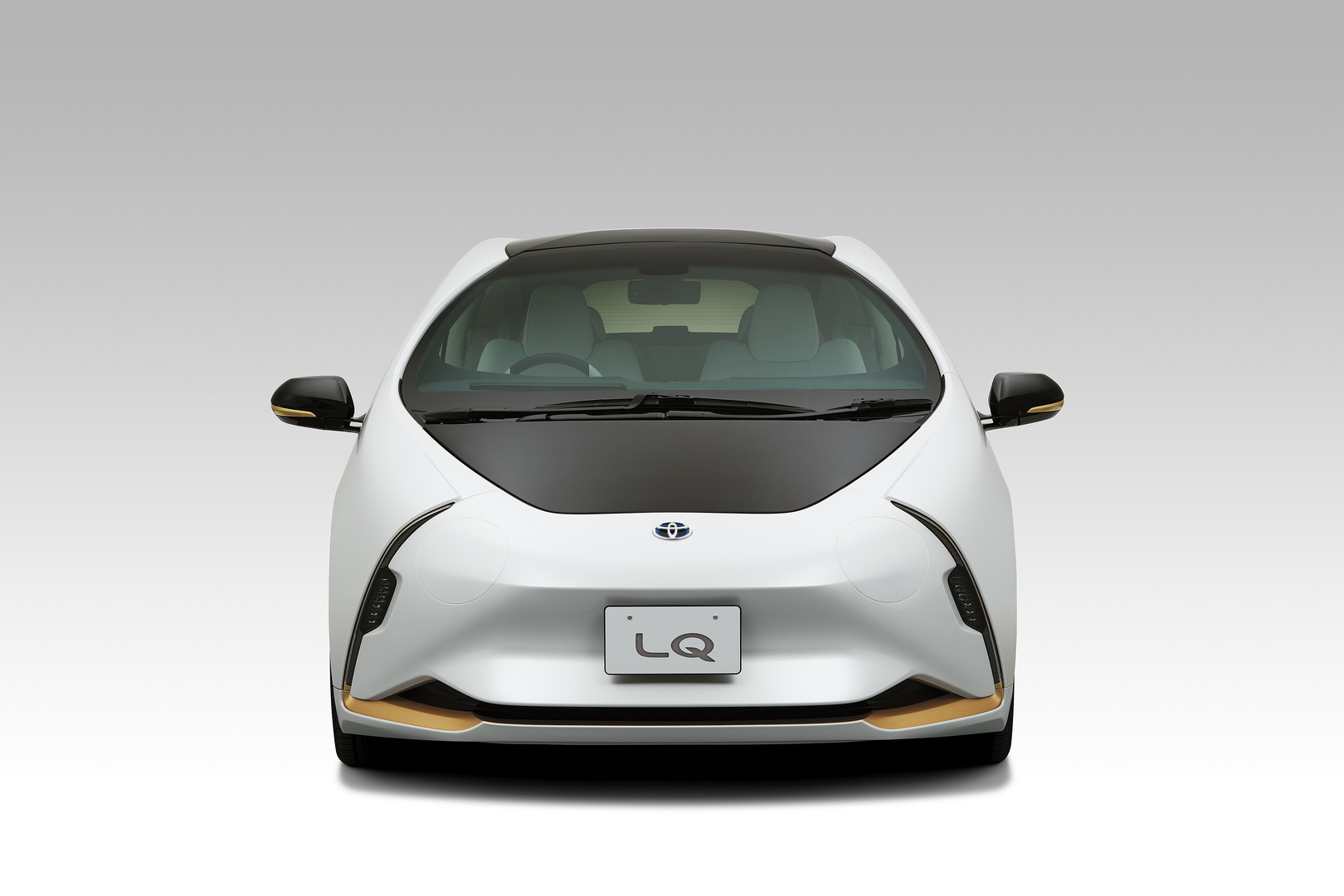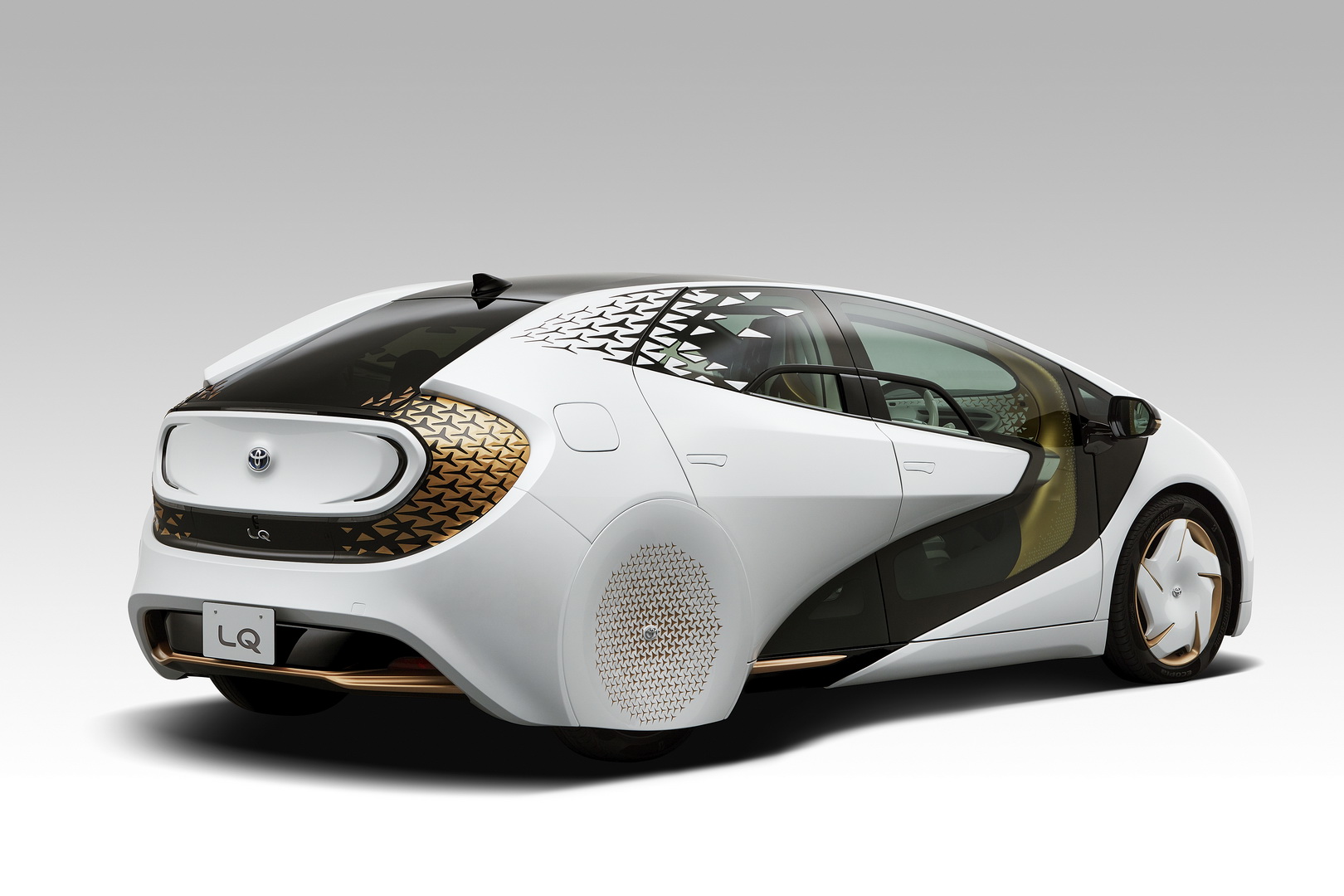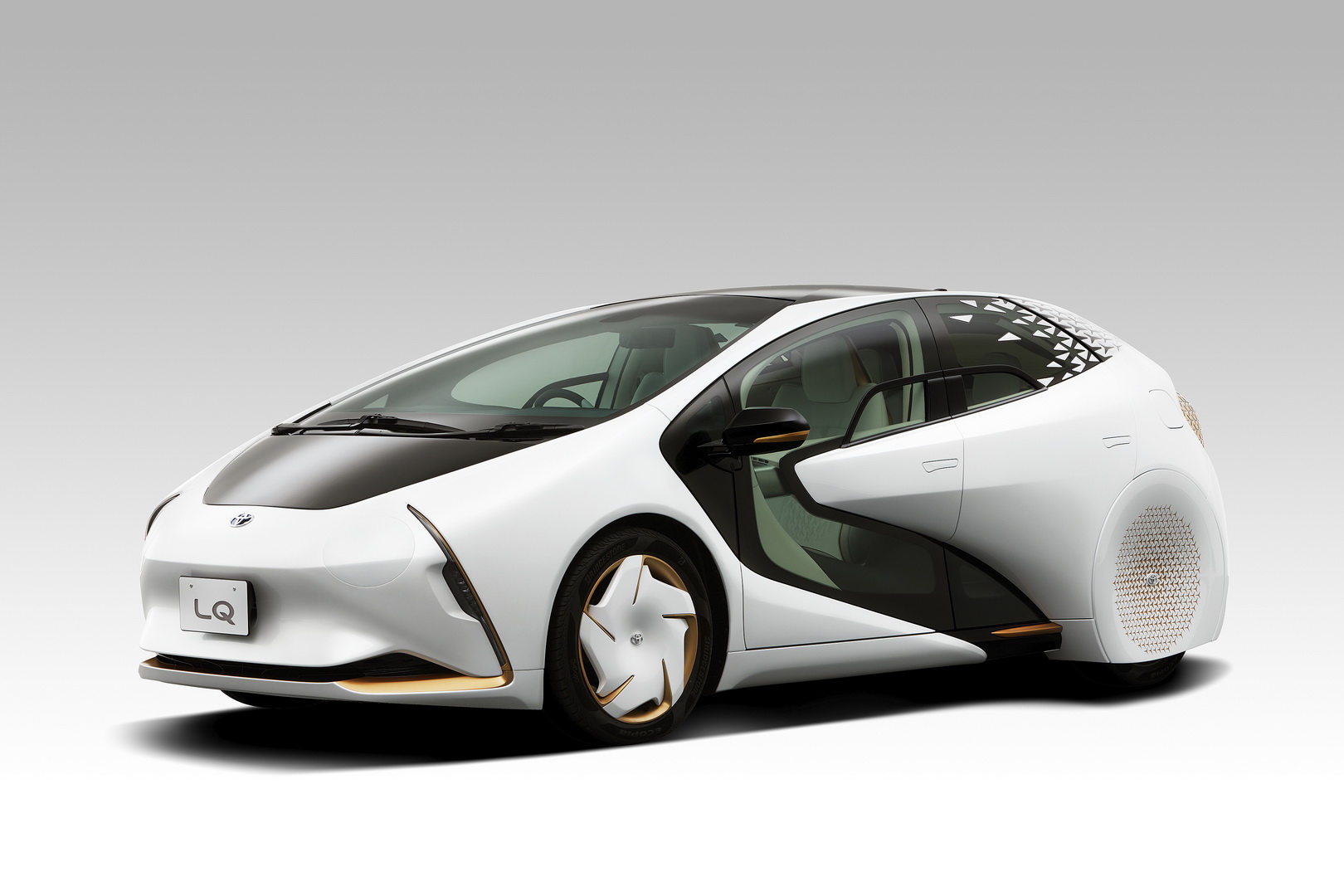Toyota has updated the 2017 Concept-i, giving it an overwhelming amount of futuristic technologies and a new name: the LQ.
Set to meet the public at the 2019 Tokyo Motor Show later this month before allowing them to experience it during a test drive event scheduled to run from June to September, 2020, it looks virtually unchanged, yet it does put the spotlight on new gear.
Also Read: Toyota Updates Concept-i, e-Palette Autonomous EVs For 2020 Tokyo Olympics
The highlight is the “Yui” artificial intelligence agent that’s used to control pretty much everything while also creating a pleasant environment for the driver and the three passengers. Those holding the wheel can interact with the AI via voice commands.
Occupants will know when Yui is addressing them thanks to the roof and floor mat areas that have been designed as intuitive communication platforms, lighting up foot wells to indicate which passenger it’s addressing.
Different lighting colors tell those inside when the car is in manual or automated driving mode, as the LQ is equipped with a Level 4 autonomous system. It also features an automated valet parking function, jointly developed with Panasonic, that eliminates the need to search for parking spaces, dropping off occupants and heading to an assigned parking space in the nearby lot and then picking them up again.
Another function co-developed with Panasonic is the Augmented Reality Head Up Display that helps drivers keep their eyes on the road. Seat alertness and relaxation functions, a world-first, is integrated in the study and uses several inflatable air bladders embedded into the seats, with in-seat air-con, helping drivers stay awake or relaxed.
For the instrument panel that wraps around the driver, Toyota has used OLEDs, a first for the Japanese brand. Furthermore, the show car has an air purification coating, jointly developed with Aisin, that decomposes ozone into oxygen on the radiator fan. By driving, the LQ can decompose about 60 percent of ozone contained in 1,000 liters of air in an hour.
Installed in the headlights, the Digital Micromirror Device is another futuristic function that works by activating one million embedded mirrors to project figures on the road ahead, thus communicating information such as the road surface to those inside or outside the car.
Toyota’s LQ Concept is 4,530 mm (178.3 in) long, 1,840 mm (72.4 in) wide and 1,480 mm (58.3 in) tall, and has a 2,700 mm (106.3 in) long wheelbase. It uses electric power and has a cruising range estimated at 300 km (186 miles).



